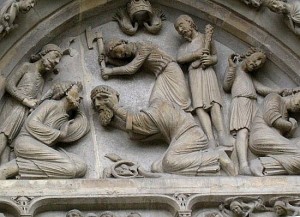On gym day this week at my daughter’s school in Paris, the girls were changing in the locker room while a group of children, boys and girls, walked through. The boys didn’t pay much attention to the disrobed girls; they were just trying to get to class, and this was a convenient route. But my daughter turned red when she told me. “I was so embarrassed,” she said. When I told another parent about the experience the next morning after drop-off, she said, “The French don’t mind taking their clothes off in front of other people.” Her own children, girls and boys, routinely dress in front of each other.
I’ve always known that physical modesty—the willingness to show one’s flesh in public—is a cultural notion. When I lived in New York City, among Orthodox Jewish women in wigs and skirts down to their ankles and among Muslim women in veils, I’d imagined that native-born Americans were on the immodest end of the spectrum. Now I know better.
What’s interesting is that the boys were so matter-of-fact about the lockerroom encounter. I can picture American boys hooting and teasing, instead. Perhaps there’s an analogy here to the way the French deal with alcohol: Everyone is exposed to it, beginning at a young age, in moderation, so they are less likely to abuse it. Children are used to seeing naked bodies—in advertisements on the metro and in their own homes—so there’s no reason to gawk.



